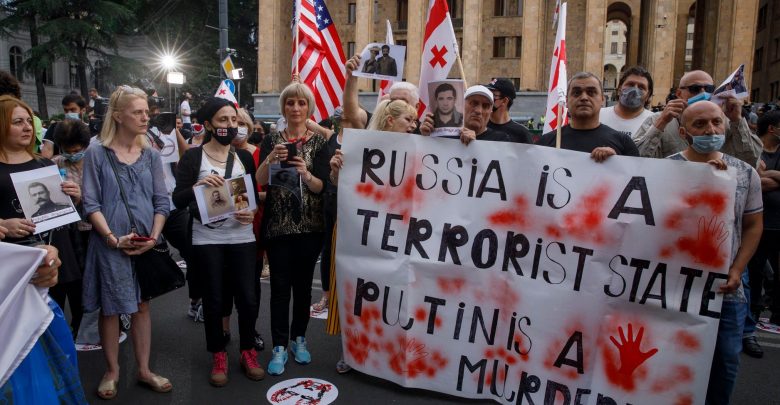
Tbilisi Reacts to Lavrov’s Interview
Georgian officials and opposition politicians reacted with criticism to the Russian Foreign Minister’s interview, in which Sergey Lavrov spoke of bilateral ties, prospects for the resumption of flights, and expressed “full support” towards Georgian Dream’s policy towards Moscow.
Parliament Speaker Archil Talakvadze stated that Georgia is not going to make any concessions “at the expense of its own national interests.”
“Under principles of international law, the truth is on our side, our territories are occupied; so if Russia wants some sort of normalization, of course, it firstly has to fulfil the ceasefire agreement, withdraw its troops from the territory of our country,” Talakvadze remarked.
Noting that the Georgian choice lies in a peaceful and democratic development, he said: “We are convinced that the wall of barbed-wire fences will come down, just as the Berlin Wall has fallen.”
Zurab Abashidze, Georgian Prime Minister’s special representative for Russia, recalled that the diplomatic ties between Georgia and Russia were cut after the occupation of Georgian territories by Russia in 2008.
“The situation in these regions is extremely grave, rapid militarization of Abkhazia and Tskhinvali region is underway,” he said.
According to Abashidze, if Russia is interested in serious progress or breakthrough in regards to the normalization of relations, it will depend on Russia to fulfill its obligations from 2008.
As for the resumption of direct flights between Russia and Georgia, Abashidze noted that Tbilisi did not initiate halting direct flights. “We were and still are interested to resume air travel, but we, of course, have to consider this within the epidemiological context,” he added.
Similarly, Economy Minister Natia Turnava said that the Russian decision to halt flights lacked purpose when it was taken, as Russian tourists arriving in Georgia have never faced any threats in the country.
MP Sergi Kapanadze of opposition European Georgia party, said normalization understood by Russia, in reality, means that Georgia has to recognize Tskhinvali region and Abkhazia as independent states and sign the restoration of diplomatic ties.
Otherwise, the re-establishment of relations would mean that the two countries respect each other’s territorial integrity, Kapanadze went on, noting that Lavrov had the first option in mind.
Levan Bezhashvili from the United National Movement, former ruling party, commented that the Russian Foreign Minister’s statement is another clear proof that “Georgian Dream authorities and Russia’s Putin have indeed a close connection.”
This post is also available in: ქართული Русский